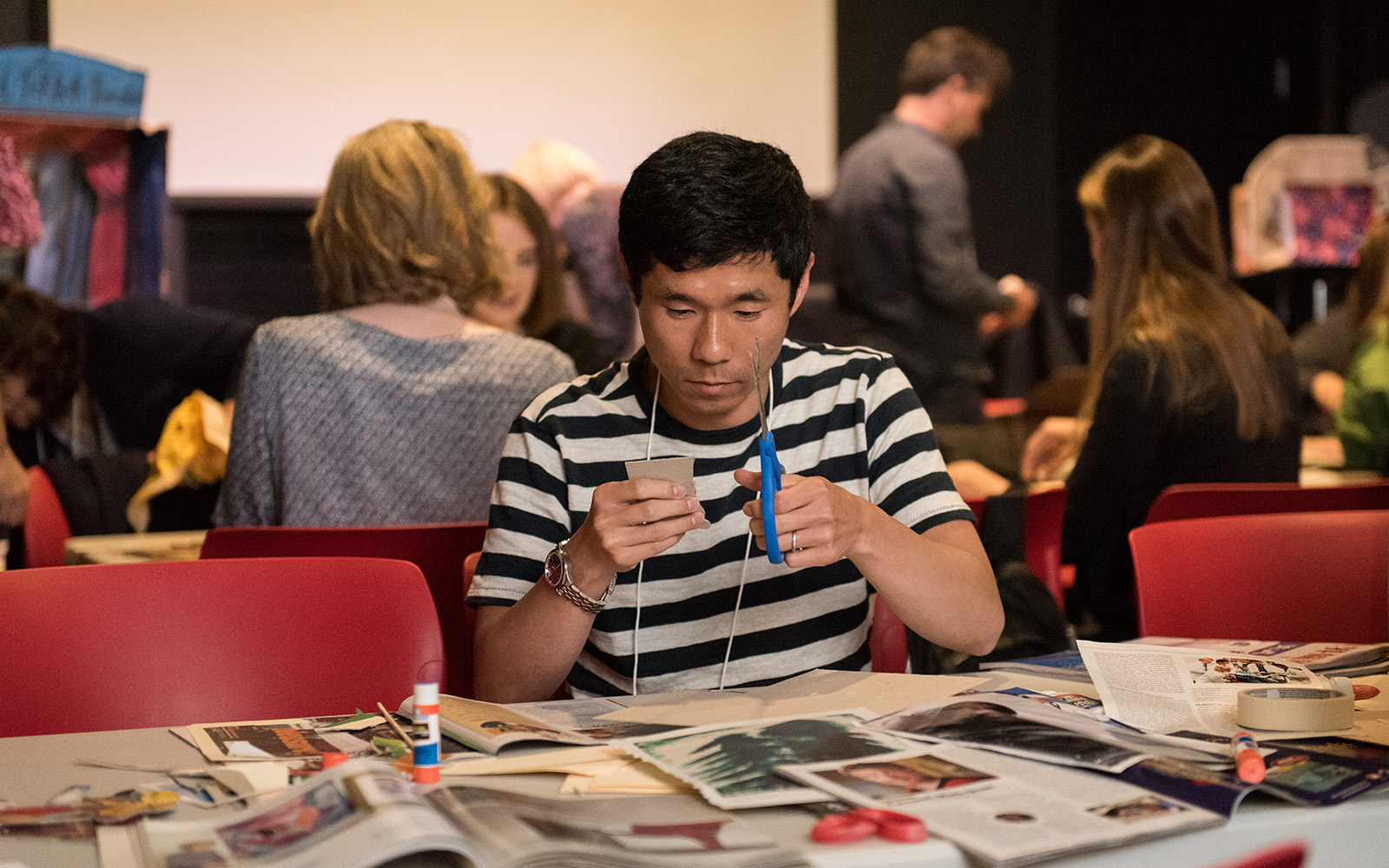
Cooking, Puppetry, Research All Part of Management’s Creativity Conference
How do you celebrate and inspire creativity when you have three dozen top creative scholars coming to campus?
Management professor Nora Madjar knew they wouldn’t just want to sit in a conference room all day. So when she organized the second annual Creativity Collaboratorium, she also planned a dinner event, in which everyone participates in the preparation, and a chance to learn about and practice puppetry at UConn’s Ballard Puppetry Museum.
Faculty came from across the country and around the world, including professors from Cornell, Boston College, Boston University, University of Maryland, University College London, Universita Cattolica del Sacro Cuore (Italy), University of San Diego, Syracuse and Georgia Tech and the European Institut Europeen d’Administration des Affaires.
“The conference was a combination of working on our projects, helping each other advance creativity research, and being involved in creative activities on campus to help us gain additional insights into what we practice,” Madjar said.
“The conference was a combination of working on our projects, helping each other advance creativity research, and being involved in creative activities on campus to help us gain additional insights into what we practice.” -Nora Madjar
Creativity is a critical component of both innovation and entrepreneurship and plays an important role in organizations, both large and small, she said. In today’s business world, the rapid pace of technological and global change has meant that creativity, innovation, and entrepreneurship are now, more important and necessary than ever for organizations to survive, succeed, and thrive. A goal of the creativity conference was for researchers to assess what is known about creativity and what requires more research.
The group also worked alongside UConn chefs to create and experience culinary creativity, with all participants helping to prepare the group’s meal. The UConn chefs had planned an elaborate, gourmet menu and coached the researchers on how to cook the different parts—salad and appetizer, main dish with special sauces, seasonal dessert with multiple layers. The experience provided the researchers a perfect opportunity to discuss with the chefs what inspired their creative creations, Madjar said. They also worked as a team on implementing somebody else’s ideas under their guidance, a great example of creative leadership, she added.
To feature another unique creative outlet at UConn, the closing session of the Creativity Collaboratorium was conducted in the Ballard Puppetry Museum. With the help of Ballard staff and puppetry graduate students, conference participants created Toy Theaters. Toy Theater is a revived, 200-year-old invention and art form for storytelling. In small groups, the researchers were given minimal resources (old magazines and cardboard boxes) and had the opportunity to come up with a story, write a script, build their puppets and theater, and perform. Researchers chose a variety of topics and themes, some funny or sad and related to popular culture, while others communicated a message about conference funding or what kills creativity.
“In a true integration of creativity and innovation, everyone implemented their ideas and performed for the larger group,” Professor Lucy Gilson, head of the management department.
“Organizations need creative ideas both in times of growth, to develop further, and in times of crisis, to solve problems creatively,” Madjar said. “Creativity has always been important for organizations, but recently has gained more interest and attention, and creativity research in the business field has grown exponentially through the last 20 years.”
The conference originated from a series of informal events that started five or so years ago between creativity scholars in Greater Boston and Connecticut. Last year, Boston College hosted the first collaboratorium.
